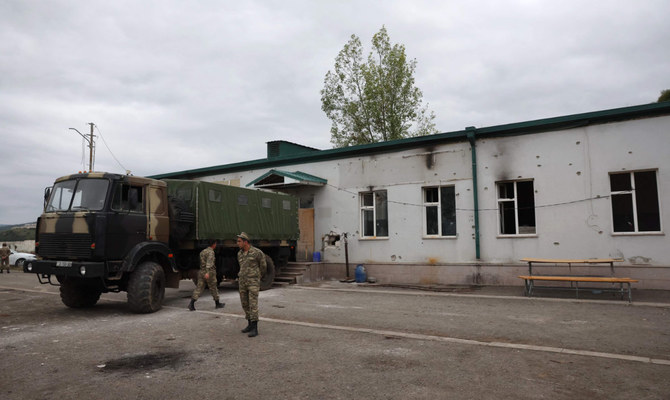
At a central Taipei branch of a popular bank on Tuesday, a few clients came to Joseph Chiu, a teller, with an odd request: to withdraw millions of kuai from their accounts. “They worry the bank will close its doors tomorrow,” he said during an afternoon streetside smoke break.
Chiu said he wasn’t worried about such an event, and there is no indication that it is even a possibility, but it was a small sign that among Taiwan’s stoic, often fatalistic population, something had shifted this week.
A few hours later Nancy Pelosi, the speaker of the US House of Representatives, landed at Taipei’s Songshan airport with a delegation from Congress. The visit – plans for which were leaked some weeks ago – comes at a time of extraordinary sensitivity and has threatened to spark a fourth Taiwan strait crisis.
Generally, Taiwan’s population had not been overly interested in the talk of a visit. As international media pumped out headlines and op-eds, domestic news prioritised local elections, a long-running heatwave and celebrity news. In one bulletin, Pelosi didn’t even make the top half. Having fun with it, some commentators bet bags of rice that she wouldn’t visit.
Foreign reporters quoted Taiwanese people telling the world once again: we have been under the threat of Chinese invasion every day for decades, so what’s the use in worrying about it?
“It’s useless to worry too much,” said Chiu. “You’ve seen the Russian war, and what war looks like. If it happens, it happens.”
People’s reasons not to worry are diverse, ranging from seeing invasion as an unstoppable inevitability, to a futile mission bound to be resisted by Taiwan or thwarted with US help, to something that simply won’t happen because no one wants it.
But then Pelosi’s visit was confirmed and the mood shifted. News sites ran polls, with almost two-thirds of UDN’s respondents saying the visit was destabilising. Talk radio discussed preparation and escape plans, and walked listeners through their growing anxieties. At one point more than 300,000 people around the world were tracking her flight on FlightRadar24, before the site crashed under load.
Hundreds of civilians gathered across multiple city sites to welcome or protest against her arrival. Outside the airport, Taiwan independence groups held signs saying “I love Pelosi” and “shut up China”.
The largest crowd gathered outside the Grand Hyatt, where Pelosi was due to stay. The turnout was larger than any expected and drew a large police presence but remained peaceful. Well organised, vociferous protesters held signs calling Pelosi a warmonger, and chanted “Yankee go home” from across the road. Heavy-set men wandered the crowd wearing body cameras or holding phones aloft, capturing faces among the crowd.
A short way down the road, separated from the other group by a wide cordon and dozens of police, opposition crowds shouted “CCP get out”.
Pelosi finally arrived shortly before midnight, mobbed by supporters and media before disappearing inside the hotel. Her public comments went to Twitter, offering the US’s “unwavering commitment to supporting Taiwan’s vibrant democracy”.
Analysts here and overseas have said the visit is the most dangerous moment in cross-strait tensions for decades. The last Taiwan strait crisis lasted a few months into 1996. The following year one of Pelosi’s predecessors as speaker, Newt Gingrich, visited the island. Eventually, Beijing swallowed its irritation. But that was 26 years ago.
Advertisement
Now, Taiwan, facing a much more prosperous and assertive neighbour that claims its sovereignty and that is its largest trading partner, is balancing a wish to maintain the safety of the status quo and avoid conflict while still building international relationships.
In Taipei, Blair Lo, a biomedical industry worker, said the government could not keep defending the status quo. With China on the other side, “status quo never means the same thing”, she said.
Her views echo those of Lo Chih-Cheng, a legislator with the ruling Democratic Progressive party (DPP), who told a Taipei forum last week that Taiwan needed an alternative approach towards China. “Engagement with China is OK but don’t expect we can change China by engaging with China,” she said.
Lo supports Pelosi’s visit but said she and the elders in her life were fearful of war.
After the leak last month about the visit, a bellicose China rattled and raged, promising dire consequences and warning the US not to “play with fire”. On Monday and Tuesday the rhetoric was followed with action. People’s Liberation Army ships and planes were close to the median line, an unofficial border in the Taiwan Strait between China and Taiwan that until recently China had respected, and live fire exercises were announced for the coming days.
In China, the visit accounted for the top two approved trending topics on the social media platform Weibo on Tuesday, suggesting public interest was officially encouraged. Much of the discussion was nationalistic, pro-China and anti-Taiwan independence; occasionally it was violent. “The bottom line is here, you can’t blame us for what we do if you come,” said one post.
There is also worry among Chinese people. Some told the Guardian they did not know who Pelosi was but they saw senior officials railing against her actions, and the military publishing propaganda videos about slaughtering enemies, and they feared a war was on the horizon.
Zhu Feng, the dean of the Institute of International Relations at China’s Nanjing University, said the US was “adding fuel to the fire” but China would not do anything hostile in retaliation.
“We don’t want the military conflict to escalate. We don’t want to fight with the US on the Taiwan issue. However, it is reasonable that China and its people are angry over Pelosi’s hypocrisy,” he said.
Sources close to Taiwan’s government say the Pelosi visit is welcome but its execution has raised issues. With the furore reaching such a crescendo, for the US or China to back down would be an enormous loss of face.
There’s also some frustration that the world is only now taking serious notice. Taiwan has been warning of China’s belligerence and encroachment for years, including political interference and manipulation, and cyber warfare. Now the west is listening, having given China a decade to get better at it. On Tuesday evening the website of the Taiwanese president’s office was shut down for several hours by a denial-of-service attack.
With local elections in Taiwan due this year, and presidential elections next year, there is fear that the situation will only get worse, especially if Xi Jinping secures a third term as Chinese leader in the coming months.












